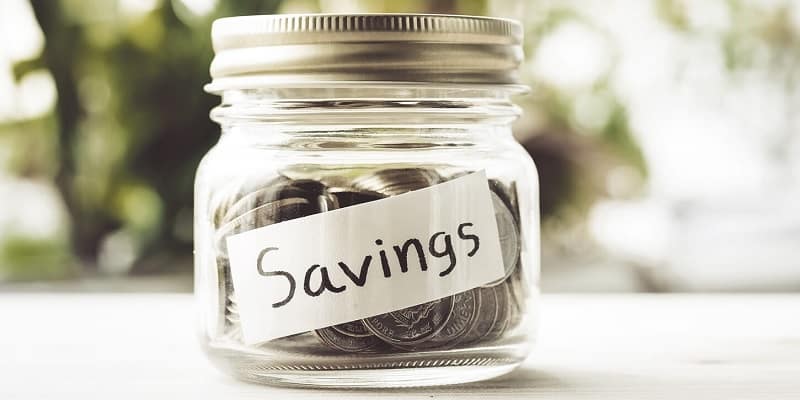
An essential part of building a strong financial foundation is saving money. Putting your cash into an account that pays a decent interest rate and is easy to access is a great way to start saving money. Once you’re in a position to save, the next hurdle is figuring out where to put your cash.
Understanding the difference between savings accounts and money market accounts can help you save more effectively — for everything from emergencies to a down payment on a house.
Money market accounts and traditional savings accounts are very similar, however, there is more than one difference between money market and savings instruments. Although both usually offer excellent security and good liquidity, certain money market vs. savings account features may offer a better fit than another for your saving goals.
Continue reading this guide to see whether a money market or savings account is a better option to put your money in so that you can make the most out of your hard earned money.
Editor’s Note: Another great way to save your money are through cash management accounts. Be sure to check out our list of our Top 6 Cash Management Accounts if you are interested in saving even more money.
What is a Money Market Account?
At its basic level, a money market account is a savings account with some checking features. They typically come with checks or a debit card and allow a limited number of transactions each month. Traditionally, they’ve also offered higher interest rates than regular savings accounts.
However, a money market account is still considered a deposit account by the Federal Reserve’s Regulation D, so the number of transnational items, like transfers or withdrawals, is limited to six per month. Luckily, though, there are some transactions, including withdrawing from an ATM or bank teller, that don’t count as one of those six transactions.
Perhaps more important for savers looking for a better return on their money, with a money market account, you can expect to receive a higher APY than a traditional savings account. However, be prepared for a higher minimum balance and maybe some other requirements to make up for it.
Pros and Cons of a Money Market Account
- Receive some of your bank’s best rates.
- Access funds more easily than with most savings accounts, which might be helpful in an emergency.
- Have a safe place to keep a large chunk of money, protected by FDIC insurance.
- Funds might be too easy to spend.
- Some accounts require high minimum balances to open or avoid fees.
- In many cases, savings accounts pay just as much interest.
What is a Savings Account?
A savings account is a bank account that earns interest on your balance to boost your savings. The interest rate depends on the bank. Often, you can earn higher rates with higher balances or by linking to a checking account with the same bank.
The best savings accounts are those with high interest rates and low to no fees. After all, you shouldn’t have to pay to save your money, especially for emergencies. Fees can add up and put a dent in your savings if you’re not careful. Some banks do charge a monthly fee on their savings accounts, although you can often get these waived by meeting a minimum balance.
Savings accounts limit you to six outgoing transactions per statement cycle, per federal law. This includes transfers and withdrawals.
Pros and Cons of a Savings Account
- Savings accounts are usually FDIC-insured and highly liquid.
- It’s possible to find high-yield savings accounts that charge no minimums or monthly fees. Otherwise you can expect lower fees and minimum requirements than other account
- You can usually access your savings account via ATMs, making it convenient to get money when you need it.
- Your APY on a savings account will most likely be lower than what you’d earn on a money market account or a CD.
- The number of withdrawals you can make a month are limited.
How are Money Market and Savings Account similar to each other?
Both money market accounts and savings accounts are deposit accounts that pay interest, and are FDIC insured up to $250,000. Each type of account offers a secure place for your balance to grow.
In addition, both money market accounts and savings accounts allow you to make as many deposits as you want. However, for both accounts there is a limit of six withdrawals or transfers per statement cycle—a limit that is set by federal law.
Money market and savings accounts are both easy to open. At most banks, all you need is some personal information and an initial deposit, and many don’t require a minimum deposit amount. Online banks offer you the added convenience of opening a savings account or a money market account on your own time, from anywhere you have internet access.
How are Money Market and Savings Account different from each other?
The main difference between a a regular savings account and money market account is how you access your funds. Money market accounts usually allow you to write checks and use ATM and debit cards for withdrawals—like a checking account.
With a savings account, on the other hand, you usually have ATM access, but you can’t write checks. You may need to take money out via electronic transfer or by calling the bank. (If your bank has a physical branch, you may also make withdrawals in person.)
A money market account might make sense when you want to write checks on an account, but not as many as you would with, say, a traditional checking account. For example, if you were saving for a home with a money market account, you’d be able to write a few checks for related expenses, such as a home inspection or an offer, without having to transfer funds from another account.
A savings account might be best when you want to put cash away for an emergency fund or future major purchases—when you don’t need to access your money regularly. Another great thing about savings account is that even kids are able to open an account if they are interested in starting to save at an early age. Be sure to check out our guide on The Best Savings Accounts for Kids if that is something you are interested in.
Author’s Note
Whether you are saving for retirement, college expenses or some other goal, a savings or money market account may have a place in your financial strategy. Deciding which account suits you requires that you research and determine whether or not you can comfortably meet requirements for an opening deposit. Then you need to maintain the necessary minimum balance in order to access the most attractive interest rate.
Definitely take a look at our list of Best Savings Rates to see which savings account or money market account is offering the highest rate so that you can make the most out of your money. Also be sure to take a look at our full list of Bank Bonuses to see what bonuses are being offered at this time.





